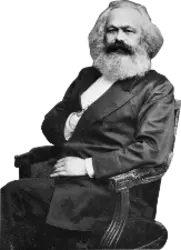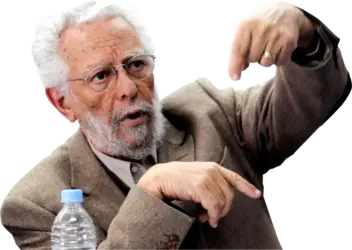DFG project: Incarnation of God in the Age of Globalisation
Summary

The four-year project, funded by the German Research Foundation (DFG), aims to structurally reformulate the significance of Christology’s central message of the Incarnation and to test its redeeming potential in questions of social and global inequality, injustice and exploitation. The main research focus deals with the theologian and philosopher Enrique Dussel’s particularly Latin American reception of Marx. With its help, the liberation-theological “option for the poor” is to be expanded into a theology of incarnation whose substantive concretion is gained within the context of the worldwide dominance of capitalist economisation.
Project Description

Outline of the Problem
Christological concepts articulate predominately those aspects of divine incarnation and salvation that are historicising and individualising in nature. On the basis of such a focus, these concepts describe central moments of Christian anthropology and soteriology. The relevance of the Christian gospel for socio-economic realities shaping contemporary society – exploitation and oppression in forms particularly prevalent in so-called ‘Third World’ countries – is rarely, if ever, discussed. Individualistically oriented Christian notions of incarnation and God-human salvation can provide a subject-oriented framework for the theological qualification of sin and salvation, but at the same time they disregard structurally and systemically life-denying correlations. The theology of liberation considers this a structural problem: according to this theological paradigm, the classical social doctrine of the Catholic Church has no suitable analytical instrument with which these conditions of exploitation and oppression can be perceived and adequately theologically reflected.
Theology of Liberation and Marx’s Method
In order to be able to develop a corresponding structural format for theology, liberation theology adopts and reconstructs the historical-materialistic method of Marx’s Critique of Political Economy. At the same time, it claims that its theological application of Marx’s economic criticism avoids the ideological consequences of a Marxist/communist philosophy.
Enrique Dussel’s reception of Marx’s theses
Against this background, the Argentinian-Mexican liberation philosopher and theologian Enrique Dussel also attempts to generalise Marxist theory as an ethics of liberation extending beyond Marx’s specific theses. He argues that by applying Marx’s category of “living labour”, he can precisely analyse the reality of the poor and oppressed (Lévinas’ “exteriority”) which, from the point of view of capital, is consistently negated. In his work, the specific theological exteriority of the poor becomes a starting point from which to criticise the destructive mechanisms of a capitalist economic and social order. Beyond Marx, Dussel attempts to methodologically establish the critique of capitalism in a positive formulation of a social order ordained by God. To do this, he makes use of the biblical ‘Kingdom of God’ speech. From this point of view, Dussel seeks to think through and practically promote liberation from oppression and exploitation. For Dussel, the ‘Kingdom of God’ functions as a normative horizon of the absolute exteriority of God, whose fundamental positivity does more than merely negate untenable conditions. For systematic theology, this productive handling of the biblical promise of the Kingdom of God constitutes a fertile new approach to Christological reflection on incarnation and salvation.
Reception of the socio-scientific Dependency Theory and globalisation critique
In the course of constructing the aforementioned theory which moves beyond Marx’s theses, Dussel also refers to the socio-scientific Dependency Theory (structural, socio-economic dependence of the ‘Third World’ on the ‘First World’ and not simply underdevelopment of the former). This allows him – on the basis of Marx’s criticism – to critique and theologically qualify not only local-national but also global mechanisms of oppression and exploitation as sinful.
Task and goal of the research project
So far, Dussel’s work has mainly been consulted with regard to the philosophical/ethical components of his thinking. The aim of this research project is to make Dussel’s writing on Marx, most of which is only available in Spanish-language publications, accessible in a sophisticated, academically relevant form. Based on this access, the project also aims to systematically and theologically develop the significance of Dussel’s liberation philosophy. In particular, the value and relevance of Dussel’s concept of “sacramental materialism” is to be presented for the development of a structural format in christology and soteriology. Thus, the aim is to soteriologically cement the often abstract discussion of poverty and oppression in Christian theology and to more concisely reformulate the promise of salvation of faith in the incarnation of God, which primarily promises the salvation of creaturely corporal dignity to the poor.
Concrete procedure
In concrete terms, the following steps are to be undertaken:
- First, Dussel’s so-called ‘Marx trilogy’ (La Producción Teórica de Marx. Un Comentario a los Grundrisse (1985); Hacia un Marx desconocido. Un Comentario de los Manuscritos del 61–63 (1988); El último Marx (1863–1882) y la liberación latinoamericana. Un comentario a la tercera y a la cuarta redacción de »El Capital« (1990)) will be made systematically accessible.
- Subsequently, the findings will be placed in the overall context of his liberation-philosophical and theological thinking, both in terms of content and methodology. In this process, four particular aspects are to be taken into account: (a) Dussel’s methodological transition towards the analectic moment of positive dialectics, (b) the identification of ‘living labour’ (Marx) with exteriority (Lévinas), (c) a Christian liberation-theological interpretation of historical materialism as sacramental materialism and (d) the biblical-theological discourses on the ‘People of God’, the ‘Kingdom of God’ and ‘Judgment’.
- Finally, on the basis of these results, a structural format of Christology shall be designed which takes up the mentioned theologumena of ‘People of God’, ‘Kingdom of God’ and ‘Judgment’ and which is capable of fulfilling the systemic relevance of the promise of salvation of the Christian faith.
Conclusion
Only in this structural Christology – complementary to classical soteriology and incarnation Christology – (1) can structures and mechanisms of inhumanity be adequately recognized and theologically qualified as ‘inimical to God’ and only here (2) can the relevance of Christian theology for a (particularly socio-economic) humanisation of world and human be made plausible.
Literature
- Bründl, Jürgen: Wahrheit der Erlösung. Zur theologischen Kritik der Heilsökonomie des Glaubens [Truth of Salvation. On the Theological Critique of the Salvation History of Faith], in: Bründl, Jürgen / Schmitt, Alexander / Lindner, Konstantin (Hg.): Zählt Wahrheit heute noch? [Does truth still count nowadays?] (= Bamberger Theologische Studien 41), Bamberg 2021, 231–325 [currently in publication].
- Schmitt, Alexander: Religion zwischen Wahrheit und Ideologie. Das Ideologie- und Kritikverständnis von Karl Marx und die Methodologie der Theologie der Befreiung [Religion between Truth and Ideology. The Conception of Ideology and Critique by Karl Marx and the Methodology of the Theology of Liberation], in: Bründl, Jürgen / Schmitt, Alexander / Lindner, Konstantin (Hg.): Zählt Wahrheit heute noch? [Does truth still count nowadays?] (= Bamberger Theologische Studien 41), Bamberg 2021, 121–228 [currently in publication].
- Bründl, Jürgen: Ökonomie des Heils. Warum die marxistische Theorie des Geldes und seiner Verwertung einen Verständnishorizont für das Evangelium eröffnet [Economy of Salvation. Why the Marxist Theory of Money and its Value Enhancement opens a Horizon of Understanding for the Gospel], in: Laubach, Thomas / Lindner, Konstantin (Hgg.): Geld regiert die Welt!? Ökonomisches Denken als Herausforderung für die Theologie [Money rules the world?! Economic Thinking as a Challenge for Theology] (= Bamberger Theologisches Forum 17), Berlin 2018, 125–155.
- Bründl, Jürgen: Was heißt »Gott handelt« heute? Das christliche Paradigma der Menschwerdung Gottes und die befreiungstheologische Option für die Armen [What does »God acts« mean today? The Christian Paradigm of the Incarnation of God and the liberational theological Option for the Poor], in: zur debatte 2 (2017), 22–24.
- Bründl, Jürgen: Sakramentaler Materialismus. Enrique Dussels Eucharistieverständnis und die Frage nach der Methode der Theologie im Horizont marxistischer Kritik [Sacramental materialism. Enrique Dussel’s Understanding of the Eucharist and the Question of the Method of Theology in the Horizon of Marxist Criticism], in: Bründl, Jürgen / Klug, Florian (Hgg.): Zentrum und Peripherie. Theologische Perspektiven auf Kirche und Gesellschaft [Centre and periphery. Theological Perspectives on Church and Society] (= Bamberger Theologische Studien 38), Festschrift für Otmar Meuffels, Bamberg 2017, 191–220.
- Bründl, Jürgen: Was wir den Geringsten tun. Papst Franziskus und die kriterielle Bedeutung einer »Option für die Armen« in der systematischen Theologie der Gegenwart [What we do the least. Pope Francis and the criterial Importance of an »Option for the Poor« in the systematic Theology of the present Day], in: Bieberstein, Klaus / Bründl, Jürgen (Hgg.): Der Papst, der alles anders macht? [The Pope who does everything differently?] (= Bamberger Theologisches Forum 16), mit Beiträgen von Joachim Frank u.a., Berlin 2016, 147–170.
- Bründl, Jürgen: Glaube in Zeiten des Kapitalismus – Karl Marx, die Theologie und das Gespenst der Kritik [Faith in Times of Capitalism – Karl Marx, Theology and the Specter of Critique], in: Zeitschrift für Katholische Theologie 138 (2016), 66–84.
- Bründl, Jürgen: Die Menschlichkeit Gottes. Zur christologischen Verschränkung von Theologie und Anthropologie im Kontext der monotheistischen Religionen [The Humanity of God. On the Christological Entanglement of Theology and Anthropology in the Context of Monotheistic Religions], in: Dünzl, Franz / Weiß Wolfgang (Hgg.): Umbruch – Wandel – Kontinuität (312–2012). Von der Konstantinischen Ära zur Kirche der Gegenwart [Change – Alteration – Continuity (312–2012). From the Constantinian Era to the Church of the Present] (= Würzburger Theologie 10), Würzburg 2014, 153–173.
- Bründl, Jürgen: Wo(hin) weltliche Not und Gottes Menschlichkeit Theologie stellen? – Dogmatik als Arbeit am Begriff eines prekären Glaubens [Where worldly need and God’s humanity place the theology? – Dogmatics as Work on the Concept of a precarious Faith], in: Garhammer, Erich (Hg.): Theologie, wohin? Blicke von außen und von innen [Theology, where to? Views from Outside and Inside] (= Würzburger Theologie 6), Würzburg 2011, 139–160.